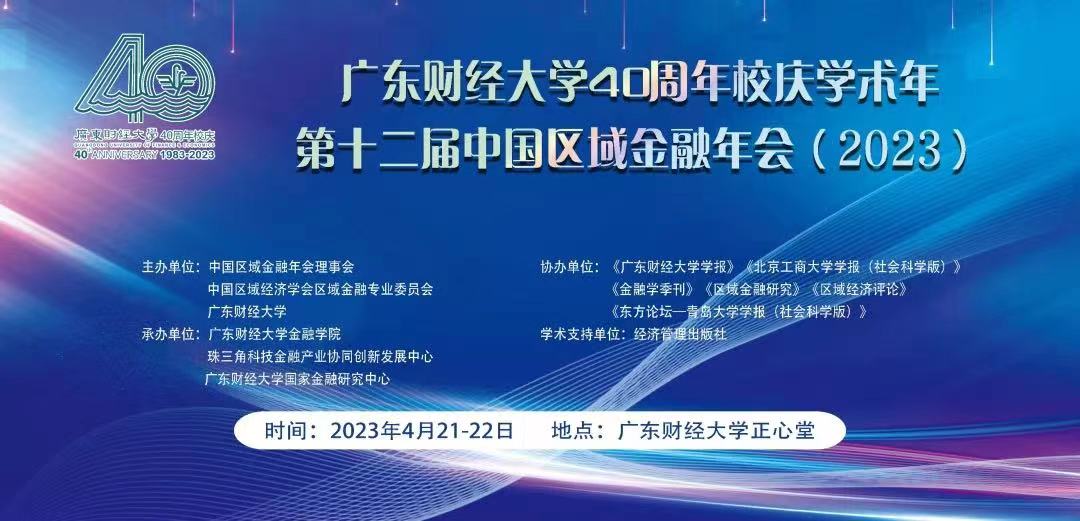
On April 21-22, the 12th China Regional Finance Annual Conference, co-sponsored by the Council of China Regional Finance Annual Conference, the Regional Finance Professional Committee of China Regional Economics Association and Guangdong University of Finance and Economics, was successfully held.
A total of 11 parallel forums were set up on nine topics. Nearly 100 authors from more than 80 universities had in-depth interaction and communication, and 10 outstanding papers were selected from 300 submitted papers. Among them, Professor Lv Yongbin, deputy director of the base, and Guo Yichen, a master's student, won the first prize for their paper "Going against the Wind: Typhoon Disaster and Bank Risk Behavior".
Marching against the Wind: Typhoon Disasters and banks' risky Behavior
Abstract: Typhoon, as a kind of extreme weather with high intensity and high frequency, not only causes damage to social and economic activities, but also has an impact on the financial sector, causing a series of chain reactions and feedback behavior. This paper takes the typhoon events from 2013 to 2018 as A natural experiment, selects 271 local commercial banks as the research object, matches the operation data of 4512 A-share listed companies, uses the wind field model to build city-level typhoon damage indicators, and discusses the influence of typhoon disasters on bank risk behavior from enterprise management channels. The study found that the typhoon disaster led to a significant increase in bank credit default risk, prompting banks to increase the level of risk. Mechanism analysis shows that typhoon disasters reduce the production efficiency of enterprises and cause losses of enterprises' assets, which leads to increased risks of local banks. Further analysis shows that the rise of bank default risk reduces the risk appetite of banks, leads to more cautious credit decisions, makes enterprises face higher financing constraints, and ultimately magnifies the impact of typhoon disaster on the whole economic and financial activities. This study provides new empirical evidence for banks' climate risk governance.
Key words: Typhoon disaster; Bank risk-taking; Production efficiency; Loss of assets; Financing constraint
